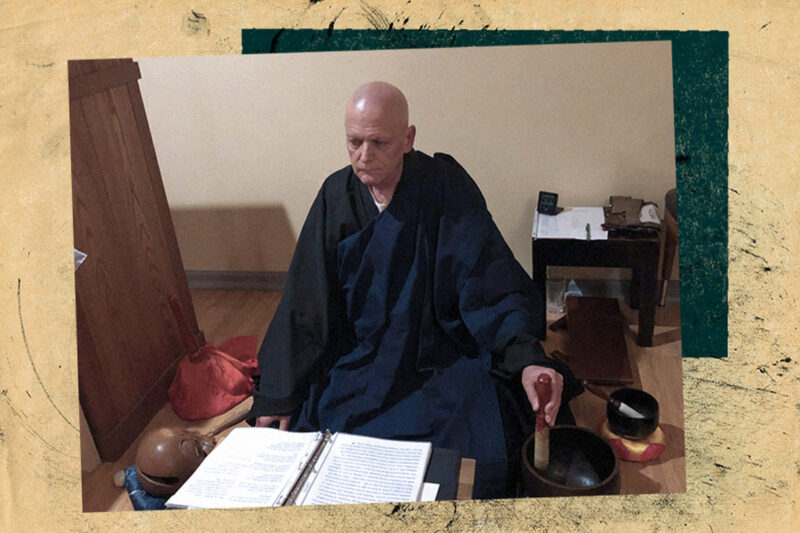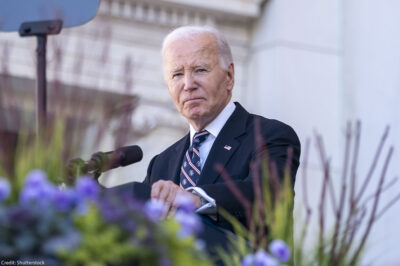The Federal Government’s Decision to Proceed with Executions During the Pandemic Puts Me in an Impossible Position


As a Buddhist priest to a man on death row, I have prepared myself for the difficult, yet necessary role of attending the execution of a man I’ve been advising for 11 years in order to provide support as he crosses over from this life. I want nothing more than to fulfill my priestly duty to Wes Purkey, but because of the Federal Bureau of Prison’s decision to schedule his execution during a pandemic, I feel substantial pressure to abandon my religious commitments to him. I’m being asked to make an impossible decision — violate my religious beliefs or risk my health and life by attending an execution that could become a “super-spreader” event for COVID-19.
I first met Wes in 2009. As a Zen Buddhist, Wes sought my spiritual guidance to answer questions and share religious insights about life and death. While I knew Wes would eventually be executed, I was shocked and horrified when he finally received an execution date. That date was originally set for December of last year, but was postponed. His new execution date is just days away, and remains in place despite posing significant risks to the health of all involved due to COVID-19.
Much of the country is still sheltering in place and practicing social distancing. The Federal Bureau of Prisons has also taken extraordinary preventative measures by suspending all visitation nationwide, even with attorneys, due to the unprecedented worldwide public health emergency. As such, Wes and I have only communicated through letters since March. Due to my age and history of lung illnesses, which make me highly vulnerable to the virus, I have also altered my everyday life and habits. I’ve stopped going to places I used to frequent on a near-daily basis, such as coffee shops and the library, and I do not currently attend services at my temple. These are necessary adjustments to avoid contracting and spreading COVID-19.
I know from my experiences visiting Wes in prison that normal security protocol would not allow me to follow CDC-recommended safety guidelines, even those for people without medical vulnerabilities. During regular visits to Wes’s prison, I routinely came into close contact with corrections officers and other visitors. In the waiting room, for example, other visitors often sit in cramped rows of chairs for up to 90 minutes at a time. It is impossible to social distance. I expect that security protocol will be even more stringent on the day of Wes’s execution and will require more contact with correctional staff and other attendees of the execution — reporters, witnesses, the victim’s family, and others. The number of people in attendance is projected to be in the hundreds, and many will have traveled from around the country. Moreover, it has been reported that the Terre Haute, Indiana, prison where Wes is housed and where he will be executed is currently experiencing a COVID-19 outbreak.
As a Zen Buddhist, I believe that one’s state of mind must be at peace at the moment of death in order to release one’s attachment to this life with minimal distress. It’s vital that I be there, as Wes’s priest, to ensure this peaceful transition from life to death during his most dire moment of distress —his ultimate crisis — as he sits at the threshold of death. I will chant from behind a plexiglass barrier to ensure his peace of mind and, through my physical presence, will serve as a spiritual reminder to Wes of all the religious lessons I have taught him as he passes on from this life. This is my sacred duty.
The federal government’s decision to proceed with Wes’s execution burdens my religious freedom by forcing me to choose between performing my religious duties as a priest, and protecting my own life. Although Trump administration officials have repeatedly claimed the mantle of guardians of religious liberty, too often their commitment wavers when it is inconvenient for their political agenda. This appears to be one of those times.
While I am religiously obligated as Wes’s priest to provide him spiritual guidance and comfort as he leaves this life, none of this dismisses his responsibility for his actions. I do not intend to gloss over the gravity of his past errors and the tremendous suffering they caused for others. Many will argue that Wes should be denied his right to my presence at his execution due to his crimes. I understand this position — people have a right to feel outraged by any harm he has caused. But is the answer really to rob him — and me — of our religious liberty? We must ask ourselves how much we are willing to sacrifice to enable the government to perpetuate a cycle of killing.




